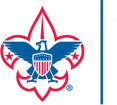Category: Scout Positions
(new in 2010)
The Leave No Trace Trainer specializes in teaching Leave No Trace principles and ensuring that the troop follows these principles on outings. He can also help Scouts earn the Leave No Trace award. He should have a thorough understanding of and commitment to Leave No Trace. Ideally, he should have completed Leave No Trace training and earned the Camping and Environmental Science merit badges.
Each instructor is an older troop member proficient in a Scouting skill. He must also have the ability to teach that skill to others. An instructor typically teaches subjects that Scouts are eager to learn—especially those such as first aid, camping, and backpacking—that are required for outdoor activities and rank advancement. A troop can have more than one instructor.
The troop librarian oversees the care and use of troop books, pamphlets, magazines, audiovisuals, and merit badge counselor lists. He checks out these materials to Scouts and leaders and maintains records to ensure that everything is returned. He may also suggest the acquisition of new literature and report the need to repair or replace any current holdings.
The historian collects and preserves troop photographs, news stories, trophies, flags, scrapbooks, awards, and other memorabilia and makes materials available for Scouting activities, the media, and troop history projects.
The scribe is the troop’s secretary. Though not a voting member, he attends meetings of the patrol leaders’ council and keeps a record of the discussions. He cooperates with the patrol scribes to record attendance and dues payments at troop meetings and to maintain troop advancement records. A member of the troop committee may assist him with his work.
The quartermaster is the troop’s supply boss. He keeps an inventory of troop equipment and sees that the gear is in good condition. He works with patrol quartermasters as they check out equipment and return it, and at meetings of the patrol leaders’ council he reports on the status of equipment in need of replacement or repair. In carrying out his responsibilities, he may have the guidance of a member of the troop committee.
The assistant senior patrol leader works closely with the senior patrol leader to help the troop move forward and serves as acting senior patrol leader when the senior patrol leader is absent. Among his specific duties, the assistant senior patrol leader trains and provides direction to the troop quartermaster, scribe, historian, librarian, instructors, and Order of the Arrow representative. During his tenure as assistant senior patrol leader he
is not a member of a patrol, but he may participate in the high-adventure activities of a Venture patrol. Large troops may have more than one assistant senior patrol leader, each appointed by the senior patrol leader.
The senior patrol leader is the top leader of the troop. He is responsible for the troop’s overall operation. With guidance from the Scoutmaster, he takes charge of troop meetings, of the patrol leaders’ council, and of all troop activities, and he does everything he can to help each patrol be successful. He is responsible for annual program planning conferences and assists the Scoutmaster in conducting troop leadership training. The senior patrol leader presides over the patrol leaders’ council and works closely with each patrol leader to plan troop meetings and make arrangements for troop activities. All members of a troop vote by secret ballot to choose their senior patrol leader. Rank and age requirements to be a senior patrol leader are
determined by each troop, as is the schedule of elections. During a Scout’s time as senior patrol leader, he is not a member of any patrol but may participate with a Venture patrol in high-adventure activities.
The patrol leader is the top leader of a patrol. He represents the patrol at all patrol leaders’ council meetings and the annual program planning conference and keeps patrol members informed of decisions made. He plays a key role in planning, leading, and evaluating patrol meetings and activities and prepares the patrol to participate in all troop activities. The patrol leader learns about the abilities of other patrol members and full involves them in patrol and troop activities by assigning them specific tasks and responsibilities. He encourages patrol members to complete advancement requirements and sets a good example by continuing to pursue his own advancement.


